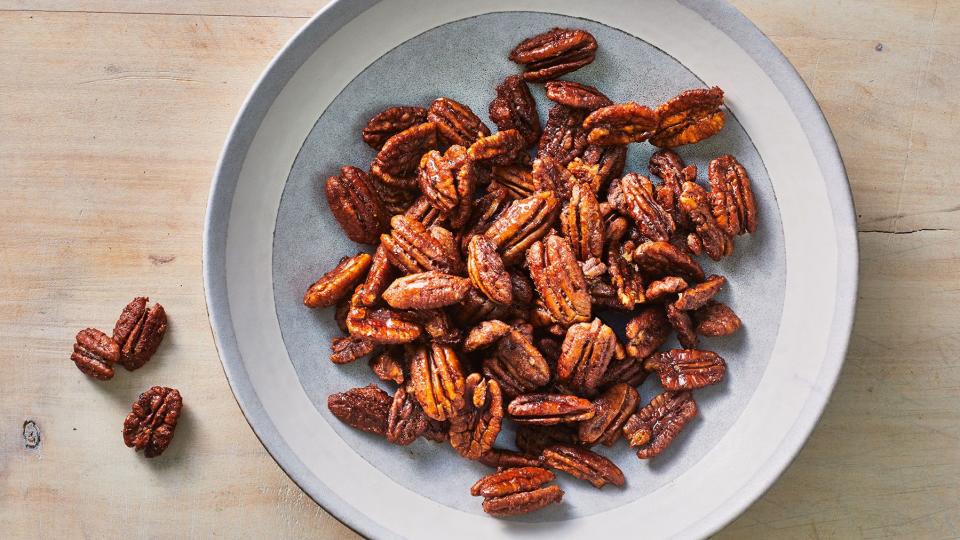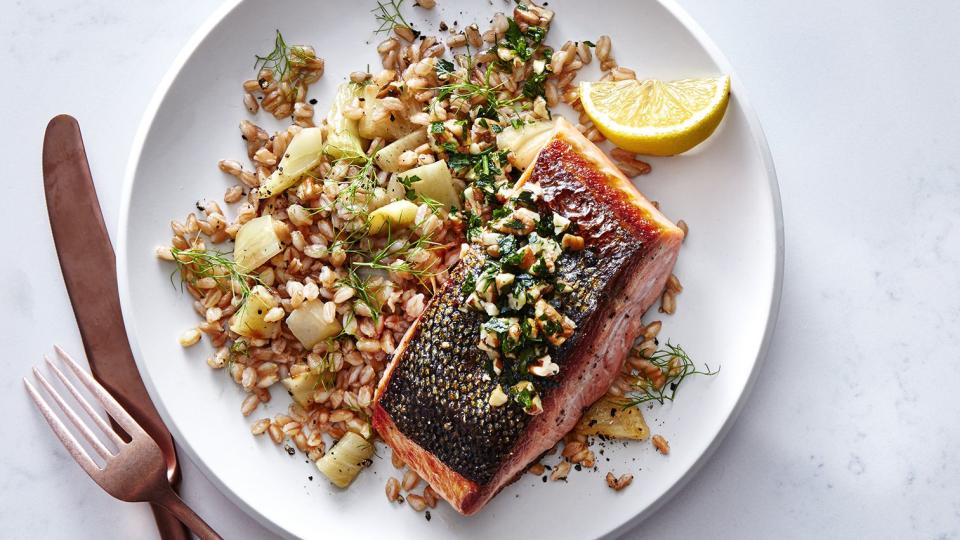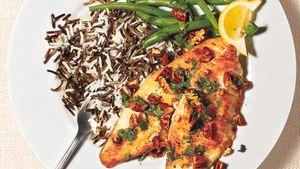4 Reasons to Make Pecans Your New, Nutrient-Dense Nut of Choice
Pecans hold a special place in my heart. As a young woman from the South, these crunchy, golden-brown delicacies are one of my favorite types of nut. As a little girl, I remember cracking open dozens of pecans with my dad (I, using a nutcracker, and he, using his hands) and savoring their rich, nutty, buttery flavor. Growing up, my mother also used to make pecans to bake one of my favorite desserts: pecan pie. And while the sugary-sweet delight may not be the healthiest of options, it doesn't take away from the fact that pecans are downright delicious. And luckily, childhood memories aside, pecans have proven to be quite nutritious and heart healthy.
Where Pecans Come From
According to NutHealth.org, pecan trees are the only major tree nuts indigenous to America and are produced by a species of hickory tree. According to the University of Wyoming (UW) Extension service, pecans are "considered one of the most valuable North American nut species." Additionally, the experts at Nut Health also determined that wild pecans were actually a staple in the diets of Native Americans. In fact, the name "pecan" is a Native American word of Algonquin origin used to describe "all nuts requiring a stone to crack," according to UW.
RELATED: We Tried 39 Nut and Seed Butters—These Are the 5 Best
Pecan trees flourish best in warm climates with appropriate water supply, lots of sun, and well-nourished soil. And while pecan trees could be considered late bloomers (they take almost 10 years to produce nuts), once they finally produce them, pecan trees can continue to produce nuts for 100 years or more (talk about the gift that keeps on giving!).
Often pronounced either PEE-can or pee-KAHN, these wonderful nuts can be tossed into nearly anything, from your favorite salad to a slice of cheesecake or banana bread—or you can simply snack on them alone. If you're looking to add a new healthy nut to your trail mix, serve up a quick cocktail hour bite, or add texture to a bowl of oatmeal, read on to learn why pecans are both a tasty and nutritious choice.
Pecan Nutritional Benefits
They're packed with vitamins and minerals.
Nuts—including pecans—are extremely high in vitamins and minerals relative to their small size. Nutritionally, they pack a punch with health benefits. "Nuts are one of the most nutrient-dense, nutritionally complete foods you can eat," says Kris Sollid, RD, senior director of nutrition communications at the International Food Information Council. "They contain a variety of nutrients including healthy fats, dietary fiber, and protein."
They're high in copper, manganese, thiamin, and zinc.
Sollid explains that pecans are also an "excellent source of copper and manganese and a good source of thiamin and zinc." Copper is an essential mineral involved in energy production and iron metabolism. Manganese is a trace mineral that plays an important role in fat and carbohydrate metabolism, calcium absorption, and blood sugar regulation. It's also necessary for normal brain and nerve function. Thiamin, often referred to as vitamin B1, is essential to the growth, development, and function of cells. And zinc helps keep your immune system and metabolism functioning normally.
They're good for your heart.
Eating nuts (including pecans) as part of a healthy diet can significantly increase your heart health. Research suggests that eating nuts may improve the health of the lining of your arteries and can help reduce the risk of developing blood clots.
"Pecans are high in monounsaturated fats (MUFA). MUFA can improve your blood cholesterol by helping to lower your LDL, (aka the bad cholesterol). Keeping your LDL level low reduces your risk for heart disease and stroke," Sollid explains. "While there is no official recommended amount of nuts to consume each day, research has shown that eating 1.5 ounces per day of most nuts, including pecans, as part of a diet low in saturated fat and cholesterol may reduce the risk of heart disease," she adds.
They're fiber superstars.
According to Sollid, pecans are a "good source of fiber, providing 3 grams per ounce, or about 11% of the amount of fiber recommended each day." Mayo Clinic suggests that "fiber, along with adequate fluid intake, moves quickly and relatively easily through the digestive tract and helps it function properly." A high-fiber diet may also help reduce the risk of obesity, heart disease, and diabetes.
They're a plant protein powerhouse.
Pecans are also an excellent source of high-quality protein. Sollid notes that pecans are a plant-based source of protein, providing three grams of protein per ounce. Bay Health explains that plant-based protein sources are easier to digest, are less inflammatory, and contain more vitamins and minerals than animal-based proteins.
RELATED: You'll Never Miss Meat With These Delicious Plant-Based Protein Options
How to Snack, Cook, and Bake With Pecans
"Pecans are a versatile food that can be included in a variety of meals and snacks," Sollid says. "They go well in snack and trail mixes and make a great topping for oatmeal, yogurt, and salads. They're also a classic ingredient in sweet potato casserole, a Thanksgiving favorite. And of course, pecans are delicious all by themselves year-round." Here are some of Real Simple's favorite ways to include pecans in snacks, sides, mains, and more for a healthy, nutty crunch.

Jennifer Causey
BBQ-Spiced Pecans
These candied pecans have a secret ingredient: barbecue sauce. A bowl of this savory-sweet treat is perfect for cocktail hour or afternoon snack. Get the recipe.

Con Poulos You can make this side dish ahead of time: Toast the pecans, cook the green beans, and make the vinaigrette up to a day in advance, then combine before serving. Get the recipe.
Green Beans With Pecans and Maple Vinaigrette
Green beans are boring no more thanks to a tangy dash of red wine vinegar, a sweet touch of maple syrup, and a hearty crunch of pecans.

Jennifer Causey
Crispy Salmon With Farro and Pecan Gremolata
Farro is a whole grain that's similar to barley, and it's an ideal side for salmon. It also has a distinctive nutty flavor, perfect for pairing with the pecan and parsley gremolata.

José Picayo The brown butter sauce can be made up to 2 hours in advance. Get the recipe for Tilapia With Pecan Brown Butter.Get theshopping list for Week 4 recipes.
Tilapia With Pecan Brown Butter
Another rich and nutty seafood dish (thank you, pecans and brown butter!) that will wow a crowd—and have everyone asking for seconds. Get the recipe.

Greg DuPree
Pecan Sandies
And what's a roundup of pecan recipes without a sweet treat? These classic pecan sandies are buttery and toasty with a hint of vanilla. Pecans take this short-bread-adjacent cookie over the top. Get the recipe.

 Yahoo Finance
Yahoo Finance 